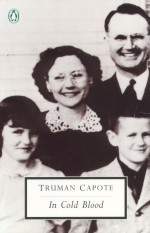
My research is revealing a lot of controversy concerning what is, and what is not, a thriller. Is Capote's
In Cold Blood a thriller? There's a debate for you.
Reader's Digest would take the affirmative side of that argument, as the RD editorial board has attempted to categorize a wide variety of books as "thrillers" in their list of "the world's best thrillers," organized by RD's definition of the most popular thriller sub-genres, commentary below provided by RD Special Editions editor Laura Kelly:
1. The Spy ThrillerThe Spy Who Came In from the Cold by John le Carré (1963) is the quintessential espionage thriller. Set during the Cold War, this rich tale still captivates with its spellbinding portrayal of the world of secret agents. And don't miss
The Avenger by Frederick Forsyth (2003) the 21st century's top spy pulse-pounder, by the author of
The Day of the Jackal.
2. The Techno ThrillerGadgets, gadgets and more gadgets. Ian Fleming started it all with James Bond and his arsenal of clever, useful gadgets, some not so far-fetched anymore. The best Bond book?
From Russia with Love (1957). Get to know the real Bond, not Sean, Roger, Timothy or Pierce, by imbibing him on the printed page. For a more recent techno thriller,
The Blue Nowhere by Jeffery Deaver (2001) stimulates the imagination with its truly surprising twists and turns, and a fascinating computer-based plot.
3. The Classic ThrillerThe War of the Worlds by H. G. Wells (1898) was one of the world's pioneering thrillers, introducing this genre, unknown at the time, to worldwide acclaim. And the story is still alive and well today. We agree: Tom Cruise is cute, but treat yourself to the real deal and snatch up the book. For a more recent classic thriller, try
Whiteout by Ken Follett (2004), the latest gem by the author of
Eye of the Needle. It's the chilling story of what happens when biological weapons fall into the wrong hands, and the blizzard that builds over the course of the book will cool you right off at the beach.
4. The Psychological Suspense Thriller If you get your adrenaline rush from mind games rather than chase scenes, psychological suspense is for you. For sheer creepiness and terror, nothing beats
The Silence of the Lambs by Thomas Harris (1988). More recently,
Shutter Island by Dennis Lehane (2003), will not only scare you silly but fool you as well.
5. The Legal Thriller Presumed Innocent by Scott Turow (1987) features terrific characters, a deftly executed plot, and fascinating legal insight, making it the definitive legal thriller. And for an exciting new author, don't miss
In the Shadow of the Law by Kermit Roosevelt (2005), a firecracker of a debut by a former clerk for U.S. Supreme Court Justice David Souter.
6. The Medical Thriller Medical paperwork these days is pretty terrifying, but you can get true terror in these two great medical thrillers. Read
Coma by Robin Cook (1977), the unforgettable saga of patients who check into the hospital for "minor" surgery and never wake up. For the strong of stomach,
The Surgeon by Tess Gerritsen (2001) is gruesomely chilling and addictively page-turning.
7. The Sci-Fi ThrillerSure he's done dinosaurs and television emergency rooms, but Michael Crichton's first novel,
The Andromeda Strain (1969), still ranks as one of the top science fiction thrillers of all time. What could be scarier than microscopic killer germs run amok? Representing the larger end of the weird-creature spectrum,
Mammoth by John Varley (2005) imaginatively spins a yarn starring a billionaire, a brilliant nerd, and a gifted animal wrangler whose newest charge happens to be a woolly mammoth.
8. The Military ThrillerYou've seen the movie, but don't miss the book.
The Great Escape by Paul Brickhill (1950) is even more captivating on paper, with perhaps the most hair-raising POW escape scene ever written. Remembering that this novel is based on a true story renders it doubly nerve-racking. For contemporary military thrillers, nothing beats the Jack Reacher series by Lee Child. Try the first Reacher novel,
Killing Floor (1997) or Child's latest bestseller,
One Shot (2005). Or, for that matter, pick up any riveting Reacher book in between.
9. The True-Crime ThrillerYes, real life can be stranger than fiction, and true-crime thrillers prove this. The most famous book in this nonfiction genre is Truman Capote's
In Cold Blood (1966). The author spent months in the Midwest painstakingly retracing the steps of two young rural killers -- and then wrote about it chillingly. Another excellent and more recent true-crime book is
Green River, Running Red by Ann Rule (2004), the true story of the notorious Green River serial killer who terrorized the Seattle area for decades.
10. The Action/Adventure Thriller Alive: The Story of the Andes Survivors by Piers Paul Read (1974) set the gold standard for heroic survival stories, with this true tale of a Uruguayan rugby team whose plane crashes, resulting in an incredible 10-week physical and emotional ordeal. Changing altitudes from mountains to the ocean floor,
Shadow Divers, the hit 2005 book by Robert Kurson, re-enacts the story of an extraordinary deep-sea discovery and adventure.
 According to JunketStudies, here are the 11 rules of grammar that are most often broken (or is it "broken most often"?):
According to JunketStudies, here are the 11 rules of grammar that are most often broken (or is it "broken most often"?):

